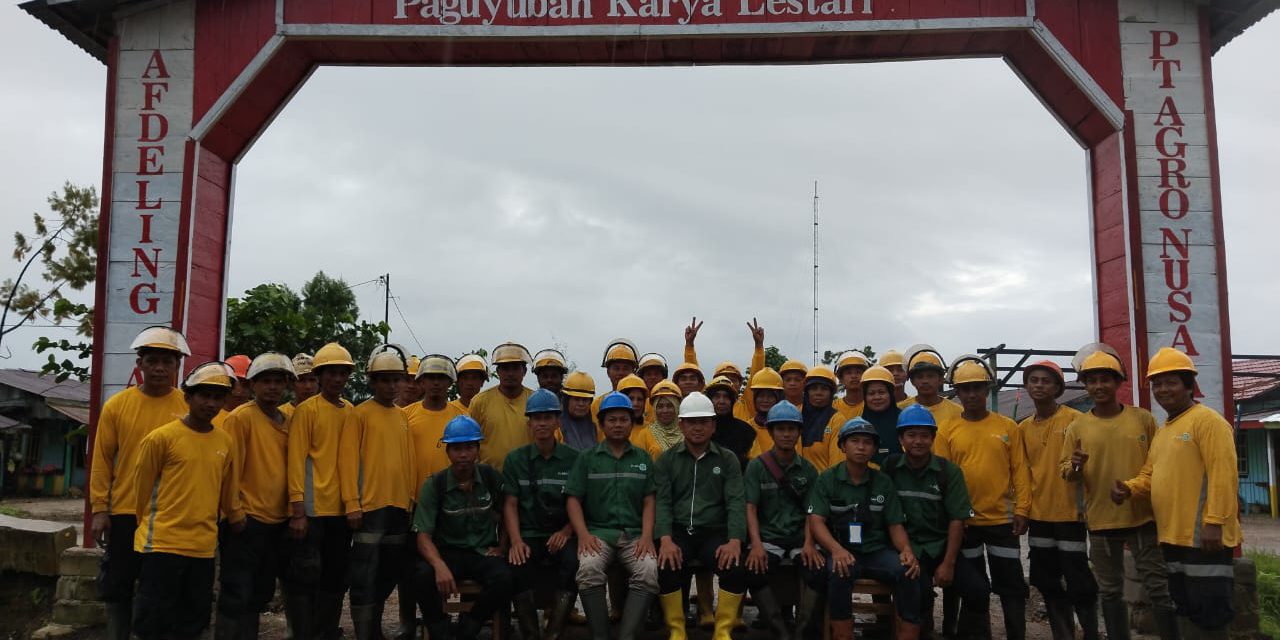
Plastic waste has become one of the most significant global environmental issues today. The excessive amount of discarded single-use plastics fills up various locations, and plastic can take up to 1,000 years to decompose. This long decomposition time can lead to serious environmental damage, including soil pollution and threats to marine life. Addressing this issue requires serious attention and global action to reduce reliance on single-use plastics and to enhance recycling efforts.
Bank Sampah (Waste Bank) of Paguyuban Karya Lestari, located in Afdeling Alfa of PT Agro Nusa Abadi (PT ANA), views this challenge as an opportunity. They have developed a process to convert domestic plastic waste into fuel oil. Egi Erlangga, an employee at PT ANA and a plastic waste refinery operator, describes the steps involved in transforming plastic waste into fuel oil.
He stated that all types of plastic collected in the waste bank are placed into a distillation device that operates through two stages of hot steam storage. From there, the hot steam is channelled through a pipe to a cooling device, producing two fuel types: kerosene and premium gasoline, as explained by Egi.

Using a straightforward distillation process, one kilogram of plastic bottle waste can yield up to half a litre of kerosene-like oil. In contrast, plastic waste, such as shampoo sachets and similar items, can be processed into approximately 300 millilitres of oil.
Aside from processing plastic waste, Paguyuban Karya Lestari also recycles organic waste into briquettes, a solid fuel made from organic materials. The briquettes from domestic organic waste collected at the waste bank substitute LPG gas for cooking. Additionally, these briquettes are sold to nearby restaurants for use as kitchen fuel, generating income for the community.



Several government agencies have visited Paguyuban Karya Lestari to observe the process of converting plastic and organic waste into renewable energy. “The system for processing organic waste into briquettes is planned to be replicated and implemented in several locations in North Morowali,” said Gunawan, the Assistant of Afdeling Alfa at PT ANA. He explained that, in addition to benefiting the environment, PT ANA’s waste recycling project can serve as an inspiration for creating income sources for the surrounding community.
Efforts to process plastic waste from domestic sources are not limited to PT ANA; various Astra Agro communities are also involved. These communities have waste bank facilities that convert waste into more useful products. For example, PT GSIP (Gunung Sejahtera Ibu Pertiwi) has innovated by creating Ecobricks, which are used to build the communities’ gates and craft handicrafts.
Astra Agro is committed to sustainability and actively implements waste management practices at both the business and community levels. Within its business operations, the company is progressively reducing its reliance on non-renewable energy by transitioning to new renewable energy sources (EBT).
The waste management efforts carried out by Astra Agro’s community associations reflect the company’s Sustainability Aspiration Values—’Public Contribution’ for environmental preservation and ‘People’ for empowering local communities economically. These initiatives demonstrate that environmental preservation does not need to begin on a large scale; rather, meaningful change can originate from smaller efforts within community groups.



